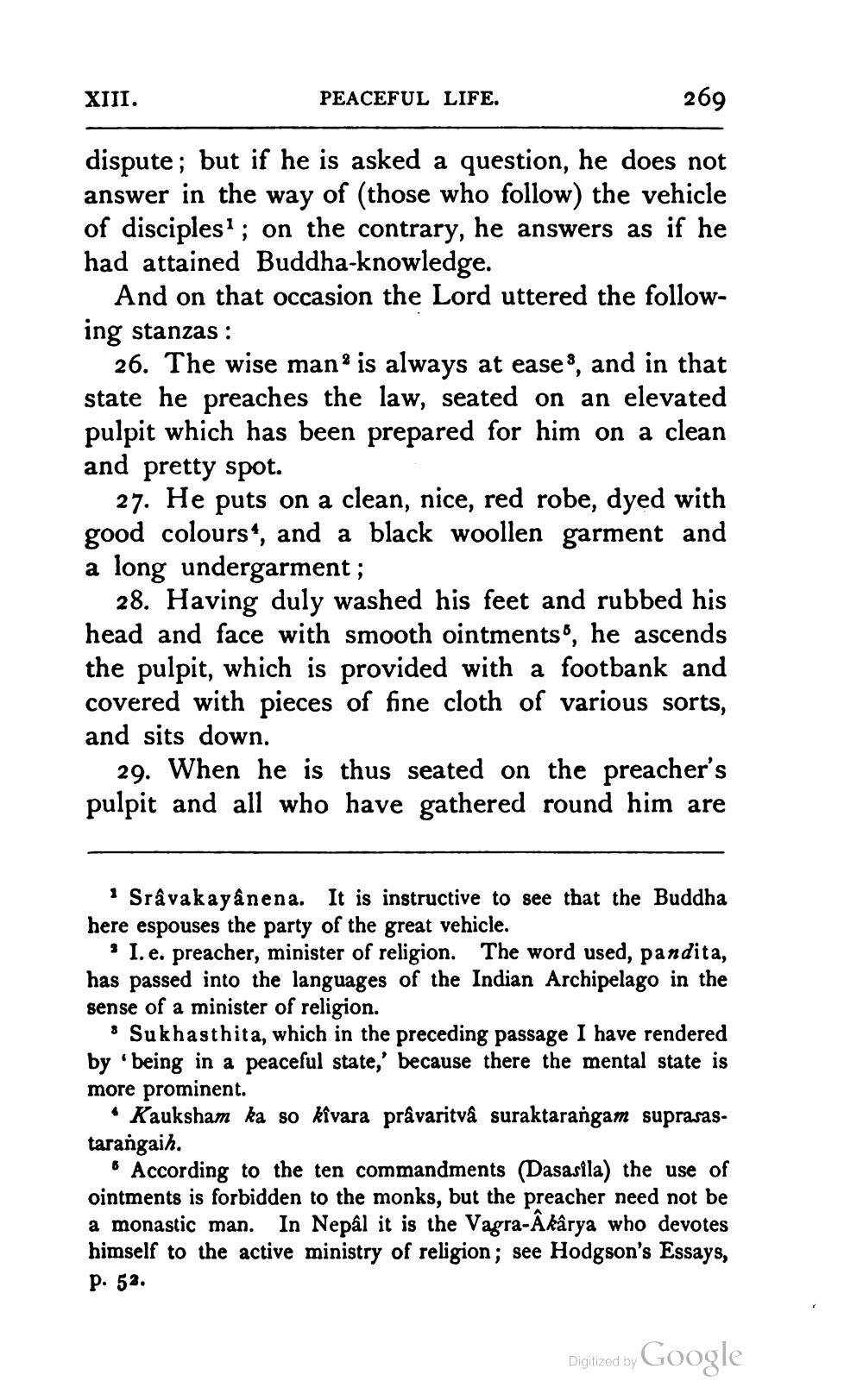________________
XIII.
PEACEFUL LIFE.
269
dispute; but if he is asked a question, he does not answer in the way of (those who follow) the vehicle of disciples?; on the contrary, he answers as if he had attained Buddha-knowledge.
And on that occasion the Lord uttered the following stanzas :
26. The wise man’ is always at eases, and in that state he preaches the law, seated on an elevated pulpit which has been prepared for him on a clean and pretty spot.
27. He puts on a clean, nice, red robe, dyed with good colours, and a black woollen garment and a long undergarment;
28. Having duly washed his feet and rubbed his head and face with smooth ointments, he ascends the pulpit, which is provided with a footbank and covered with pieces of fine cloth of various sorts, and sits down.
29. When he is thus seated on the preacher's pulpit and all who have gathered round him are
i Srâvakayanena. It is instructive to see that the Buddha here espouses the party of the great vehicle.
1.e. preacher, minister of religion. The word used, pandita, has passed into the languages of the Indian Archipelago in the sense of a minister of religion.
Sukhasthita, which in the preceding passage I have rendered by being in a peaceful state,' because there the mental state is more prominent.
• Kauksham ka so kivara prâvaritvå suraktarangam suprasastarangaih.
According to the ten commandments (Dasasila) the use of ointments is forbidden to the monks, but the preacher need not be a monastic man. In Nepâl it is the Vagra-Akarya who devotes himself to the active ministry of religion; see Hodgson's Essays, P. 52.
Digitized by Google




